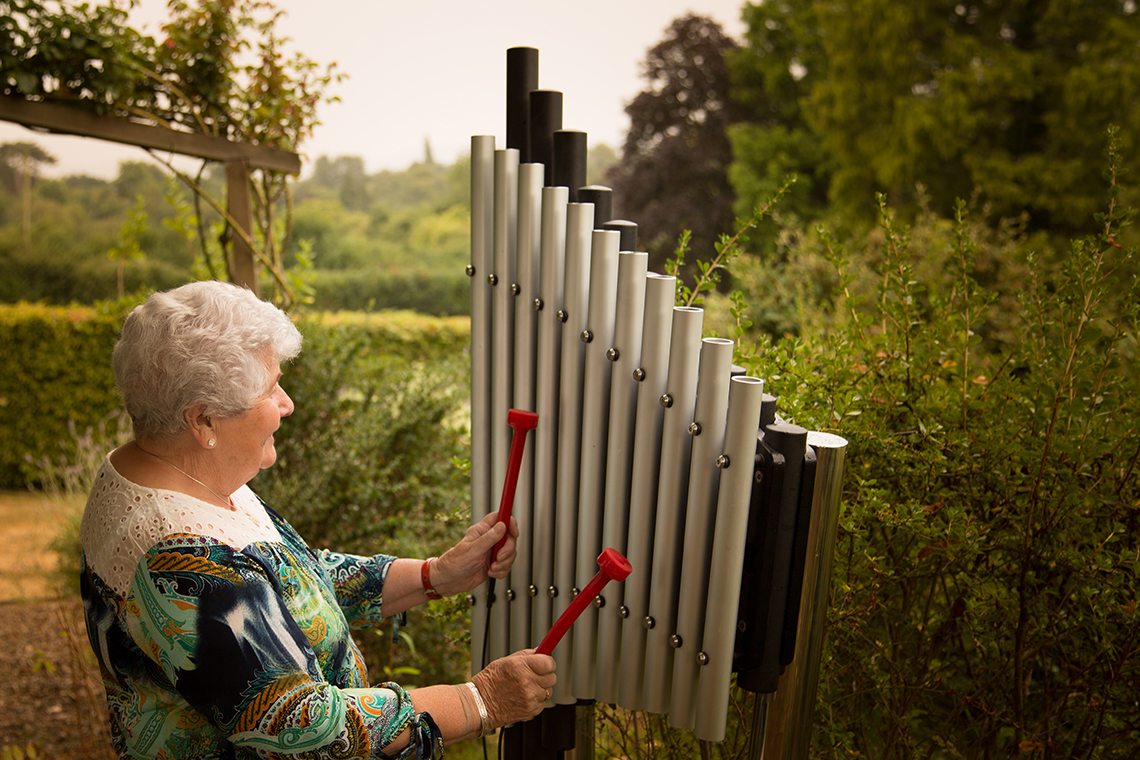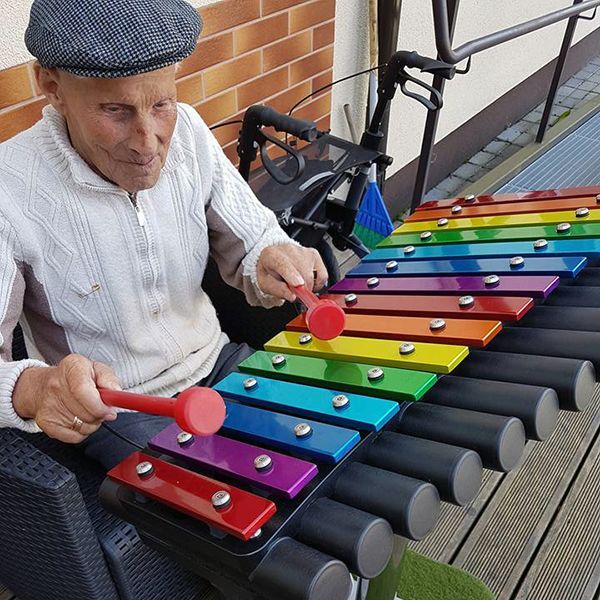Let Musical Mindfulness be your New Year's Resolution for 2020
If you’re hoping to lower your stress levels in 2020, musical mindfulness could be exactly what you’re looking for.
The word mindfulness is everywhere lately — people are being urged to become more mindful as a way to calm themselves and find insight in this busy, fast-paced, tech-driven world. Have you ever arrived at work and realised that you don't remember anything about the journey there? Have you ever been talking with someone and realised that you haven’t heard a word they’ve said because you were distracted by something that had happened earlier or worrying about something later on? Or eaten a meal and not really tasted it? If you have (and I’m pretty sure we all have) then you’ll know what it is to be ‘unmindful’. In our modern world, it’s very easy to become ‘unmindful’ (distracted, unaware, inattentive, disengaged) where the mind becomes disconnected from what is happening, going into automatic pilot.
An increasing number of individuals, as well as schools, universities, prisons, sport teams and professional organisations, are recognising the benefits of a practice called ‘mindfulness’. At its most basic, "mindfulness" is an awareness of yourself and your surroundings. It’s noticing your thoughts, feelings, bodily sensations, and anything around you. Not thinking about the future – imagining, wishing or worrying about what might happen. Not thinking about the past – remembering, analysing, regretting what has happened before. But being 100% present and aware of what is happening – in your mind and in the world – right now.
Science is increasingly endorsing mindfulness. It's been shown as an effective treatment of stress, anxiety, psoriasis and depression, and is approved by the Mental Health Foundation.
The many positive outcomes associated with mindfulness include;
- Improve immune function
- Increase empathy
- Enhance relationships
- Improve sleep patterns
- Improve academic performance and creativity
- Reduce symptoms of hyperactivity in young people
Mindfulness is effortless, but just like everything else that is important in your life, it takes time and practice. Stepping out of our classrooms or offices to practice mindfulness allows us to get some fresh air, connect, appreciate and develop a relationship with the natural world. Allowing time and space outside to connect with nature is known to make people feel more alive, and to feel an increased sense of vitality. Research studies have shown that being outside, with nature, for 20 minutes a day, increases our caring responses, energy, and mood.
Music can be a powerful, practical tool to bring mindfulness and meditation into our lives
Making music can be a form of mindfulness meditation in itself. When you make music of any kind, you’re transmitting an emotional expression to others, as well as to yourself. Performing offers an awareness of the present that you never would have known existed until you tried it. It is a cathartic tool to release deep emotions and to focus on the present moment in much the same way as meditation. You become actively aware of your own emotional reaction to the music you're making on a beat-by-beat basis.
Mindfulness can transform how you practice, perform and create music. It can be the key to performing to the best of your ability, whether you make a mistake along the way or not. It helps to unlock creativity and then helps the body and mind put that creativity into action in the most productive way possible. By becoming more mindful we get to choose which thoughts are useful and which we let go. Mindfulness can transform your effectiveness and enjoyment as a musician because it’s so often our automatic thoughts which slow us down, hold us back and trip us up. With a mindful orientation in the present, we sense how we truly sound without preconceptions or self-judgments.
Practice Mindfulness, Get Outside More And Enjoy Music!
Mindfulness practice and intuitive music-making mutually enhance and support each other and opens doors to our inherent creativity. Fancy giving your mind and body something a little different to do? why not head outdoors to your local music park, exercise and play music alongside nature, and feel all the better for it.
Our instruments are the perfect accompaniment to practicing mindfulness in the outdoors. Designed to encourage music improvisation, increase creativity, spontaneity, awareness and fun, free expression.
Here are four key techniques for mindful music-making:
- Take one mindful breath
Take a moment to focus on your physical position and posture. Breathe deeply, relax your shoulders, arms, and fingers, and give your mind a moment to settle.
- Practice mindful listening
When you begin to play, focus and listen to the length of the notes sustain, then remain silent and notice when you can no longer hear its sound. What other sounds can you hear once the ringing has stopped?
- Practice mindful movement
Feel the ever so slight sting as you slap the conga drum with your hands, the weight and feel of the beaters and the different sounds they produce by varying the strength of the strike, the vibrations the emperor chimes send through your body, the feeling of your fingers gently striking the babel drum.
- Keep it simple
When your attention wanders, simply bring it back to the present moment. To do that, you might notice your breath, or the sound of the music you’re creating, or how you feel. No matter what, the practice is simple: return to the present. Note the ease with which you play, how do you feel? Let the notes wash over you, calm your mind and soothe any nerves.
You’re experiencing music in the moment—not worrying about the future, not stressing about the past—you’re just there.

